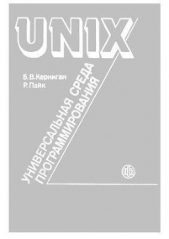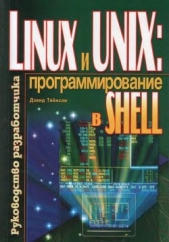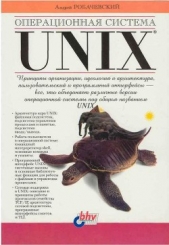UNIX — универсальная среда программирования

UNIX — универсальная среда программирования читать книгу онлайн
В книге американских авторов — разработчиков операционной системы UNIX — блестяще решена проблема автоматизации деятельности программиста, системной поддержки его творчества, выходящей за рамки языков программирования. Профессионалам открыт богатый "встроенный" арсенал системы UNIX. Многочисленными примерами иллюстрировано использование языка управления заданиями
shell.
Для программистов-пользователей операционной системы UNIX.
Внимание! Книга может содержать контент только для совершеннолетних. Для несовершеннолетних чтение данного контента СТРОГО ЗАПРЕЩЕНО! Если в книге присутствует наличие пропаганды ЛГБТ и другого, запрещенного контента - просьба написать на почту [email protected] для удаления материала
if (nbuf.ino) { nd = spdist(nbuf.name, guess); if (nd <= d && nd != 3) { strcpy(best, nbuf.name); d = nd; if (d == 0) /* exact match */ break; } } close(fd); return d;}/* spdist: return distance between two names *//* * very rough spelling metric: * 0 if the strings are identical * 1 if two chars are transposed * 2 if one char wrong, added or deleted * 3 otherwise */#define EQ(s,t) (strcmp(s,t) == 0)spdist(s, t) char *s, *t;{ while (*s++ == *t) if (*t++ == '�') return 0; /* exact match */ if (*--s) { if (*t) { if (s[1] && t[1] && *s == t[1] && *t == s[1] && EQ(s+2, t+2)) return 1; /* transposition */ if (EQ(s+1, t+1)) return 2; /* 1 char mismatch */ } if (EQ(s+1, t)) return 2; /* extra character */ } if (*t && EQ(s, t+1)) return 2; /* missing character */ return 3;}3.8.50
strindex.cstrindex(s, t) /* return index of t in s, -1 if none */ char *s, *t;{ int i, n; n = strlen(t); for (i = 0; s[i] != '�'; i++) if (strncmp(s+i, t, n) == 0) return i; return -1;}3.8.51
sv.c/* sv: save new files */#include <stdio.h>#include <sys/types.h>#include <sys/dir.h>#include <sys/stat.h>char *progname;main(argc, argv) int argc; char *argv[];{ int i; struct stat stbuf; char *dir = argv[argc-1]; progname = argv[0]; if (argc <= 2) error ("Usage: %s files... dir", progname); if (stat(dir, festbuf) == -1) error("can't access directory %s", dir); if ((stbuf.st_mode & S_IFMT) != S_IFDIR) error("%s is not a directory", dir); for (i = 1; i < argc-1; i++) sv(argv[i], dir); exit(0);}sv(file, dir) /* save file in dir */ char *file, *dir;{ struct stat sti, sto; int fin, fout, n; char target[BUFSIZ], buf[BUFSIZ], *index(); sprintf(target, "%s/%s", dir, file); if (index(file, '/') != NULL) /* strchr() in some systems */ error("won't handle '/'s in %s", file); if (stat(file, &sti) == -1) error("can't stat %s", file); if (stat(target, &sto) == -1) /* target not present */ sto.st_mtime = 0; /* so make it look old */ if (sti.st_mtime < sto.st_mtime) /* target is newer */ fprintf(stderr, "%s: %s not copiedn", progname, file); else if ((fin = open(file, 0)) == -1) error("can't open file %s", file); else if ((fout = creat(target, sti.st_mode)) == -1) error("can't create %s", target); while ((n = read(fin, buf, sizeof buf)) > 0) if (write(fout, buf, n) != n) error("error writing %s", target); close(fin); close(fout);}

























